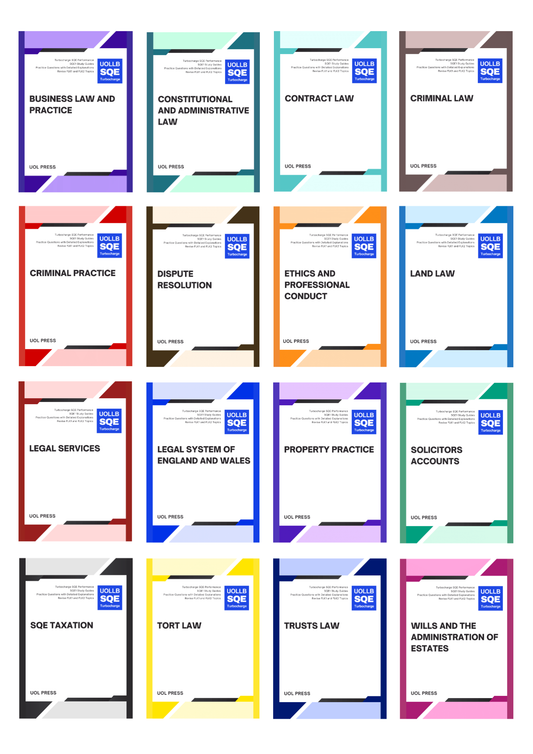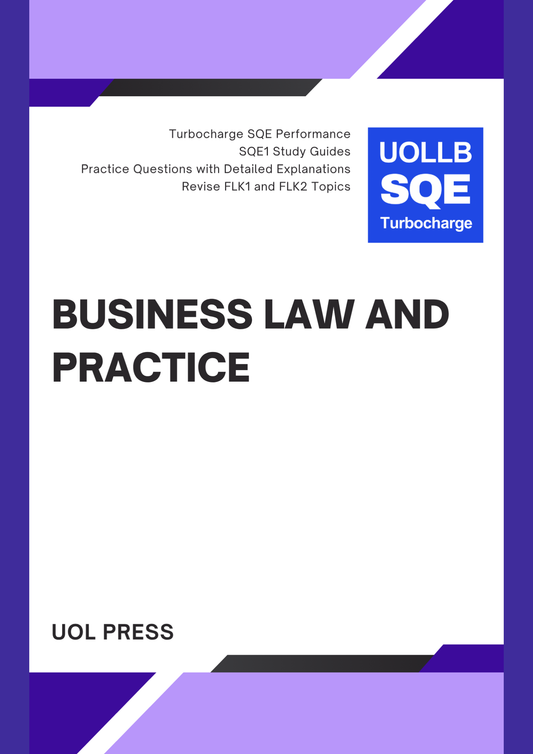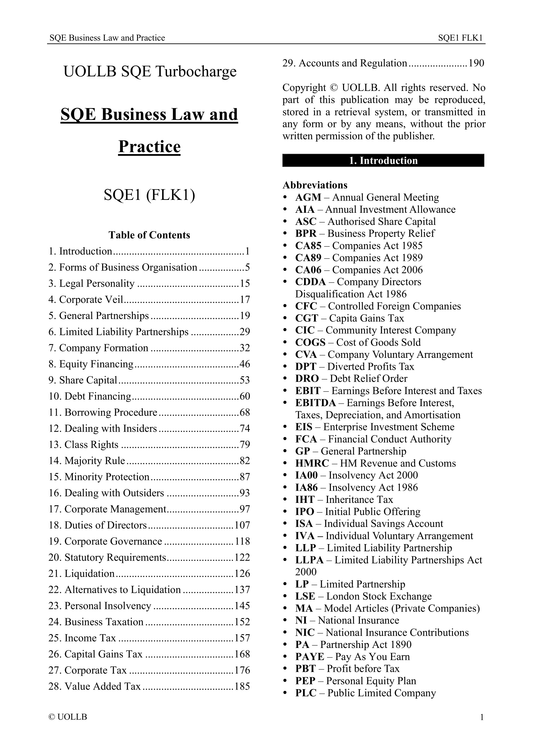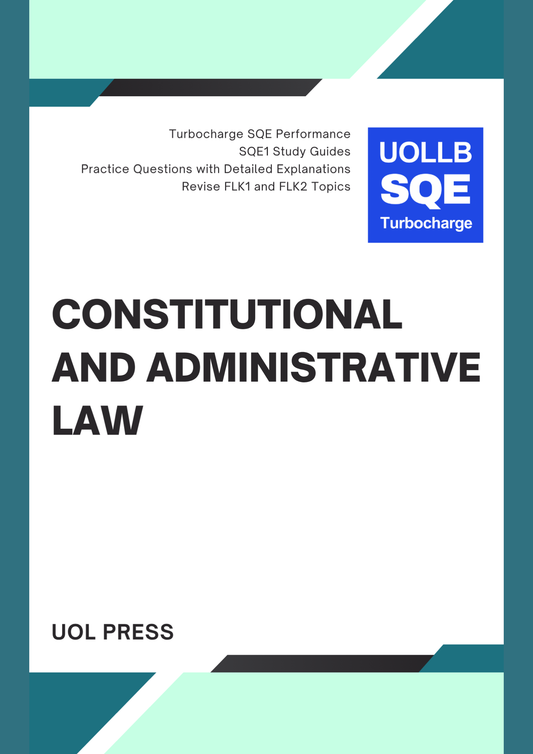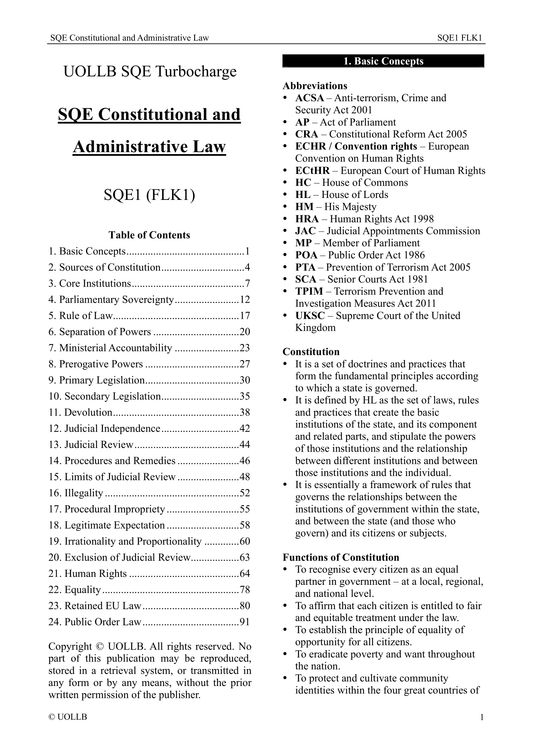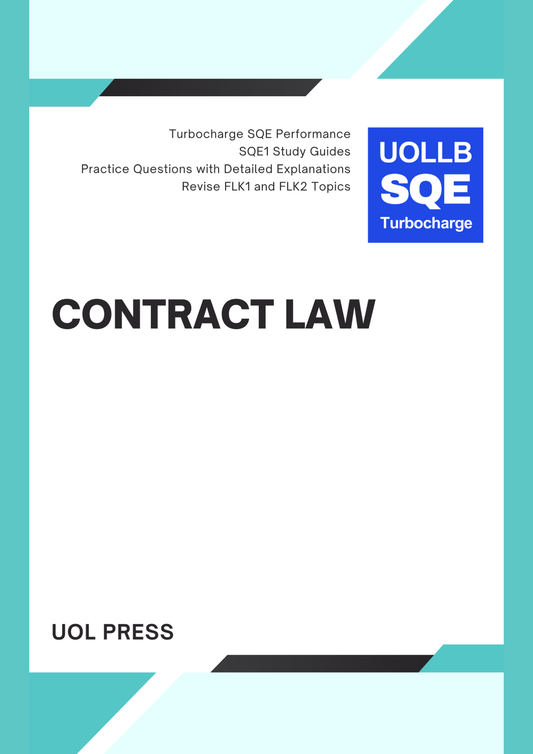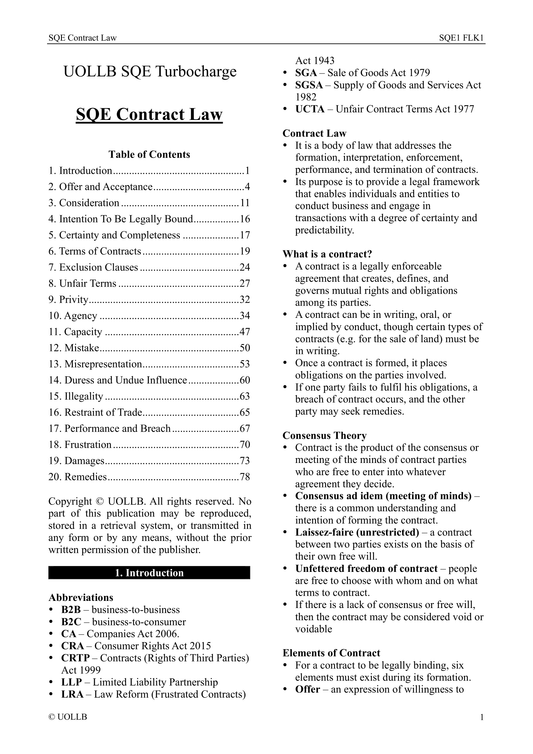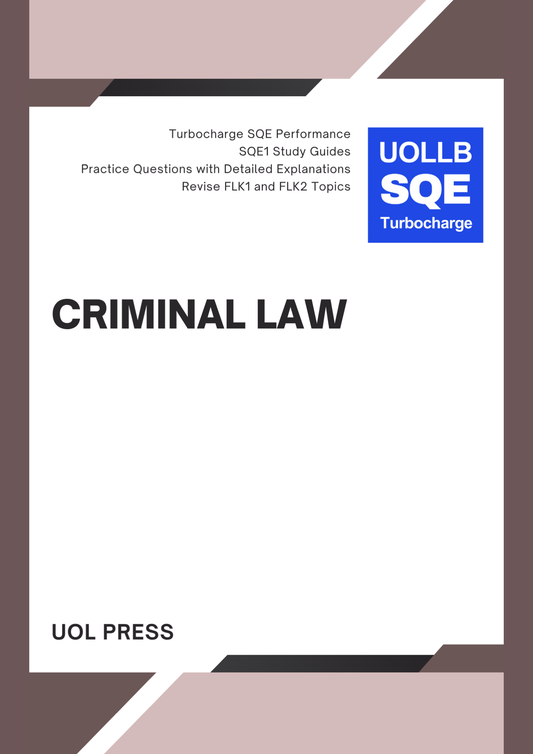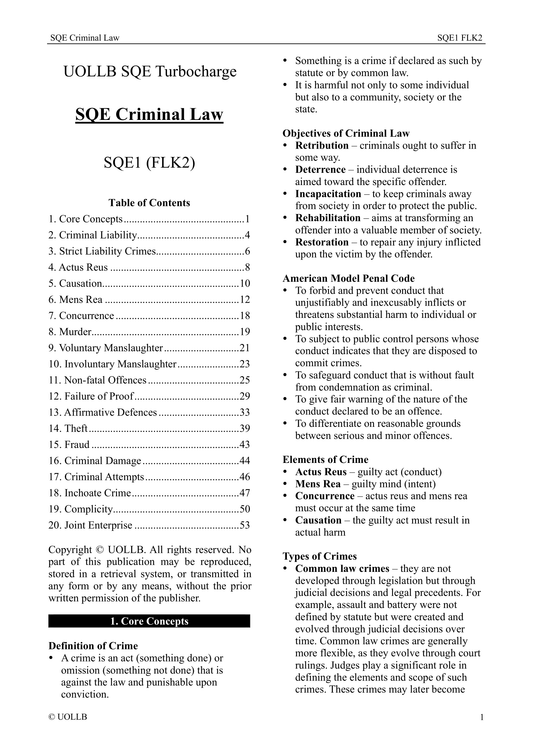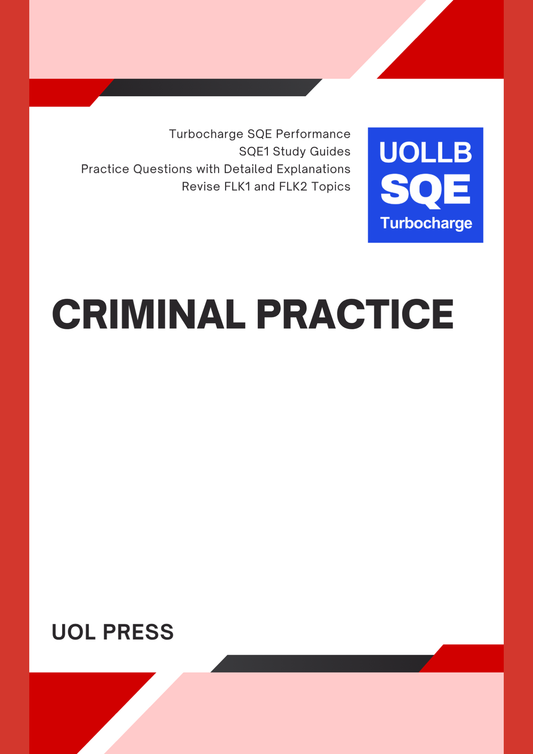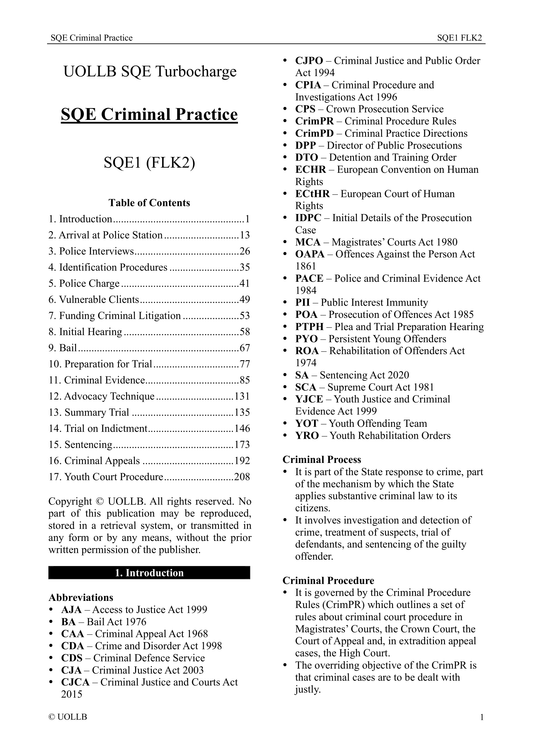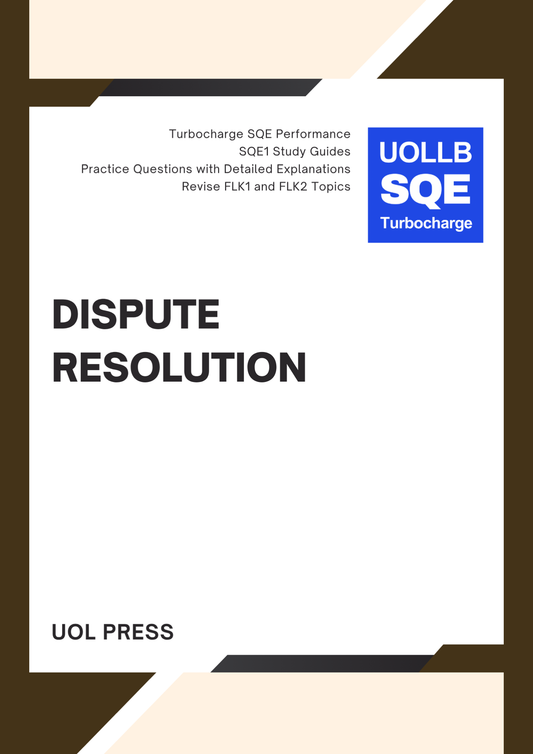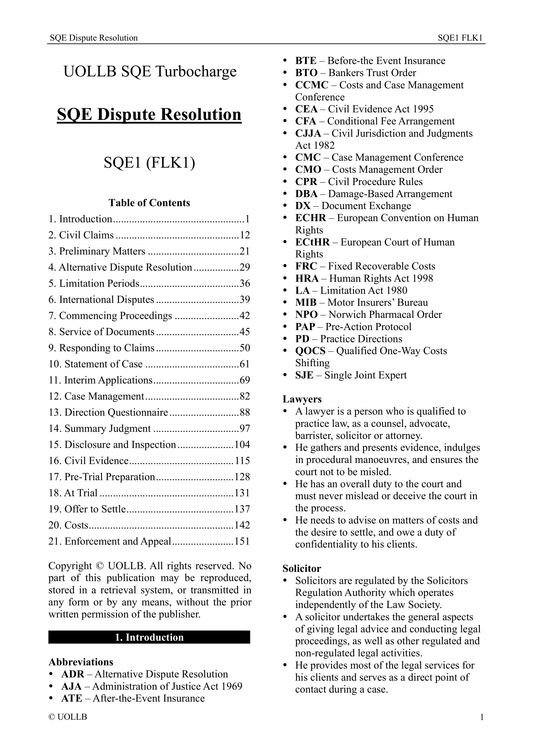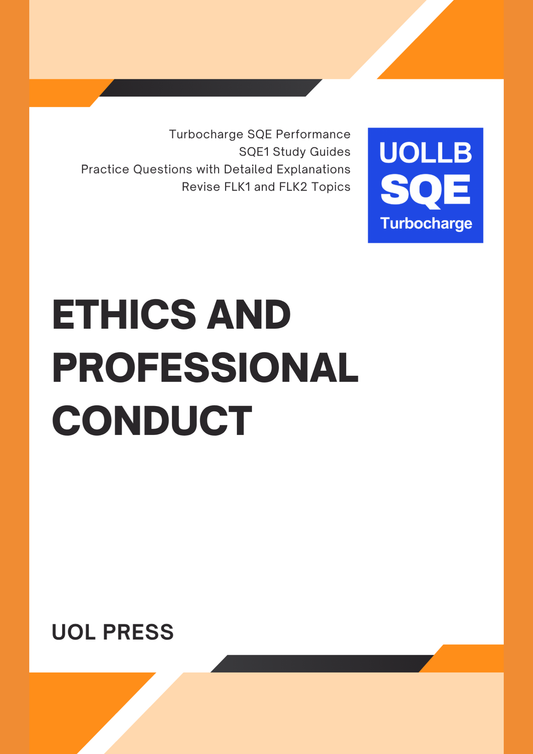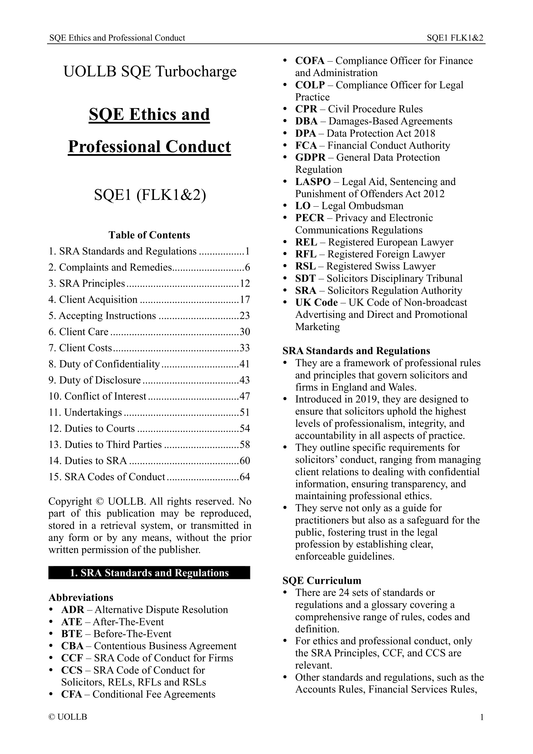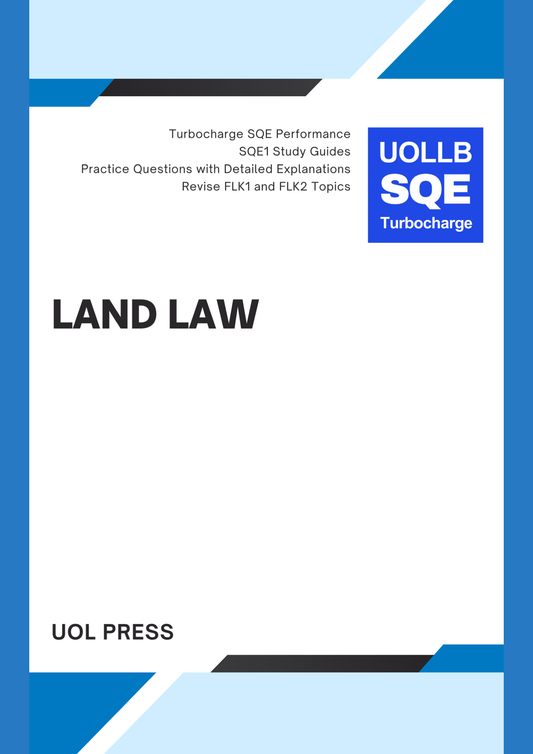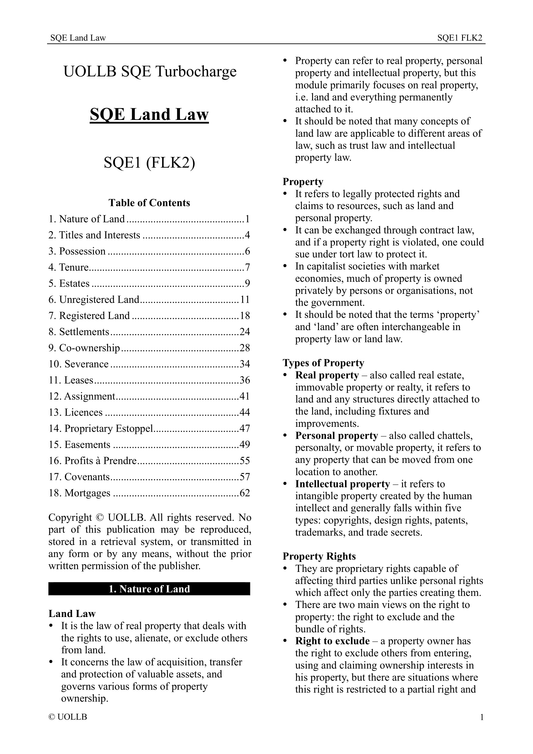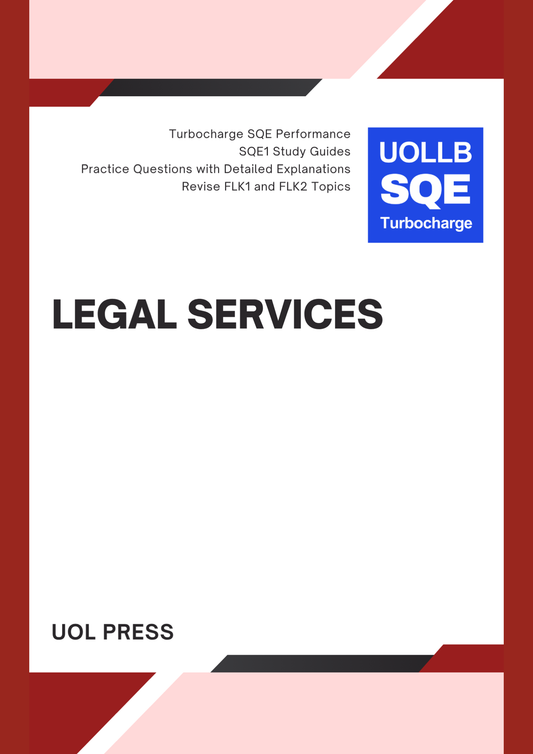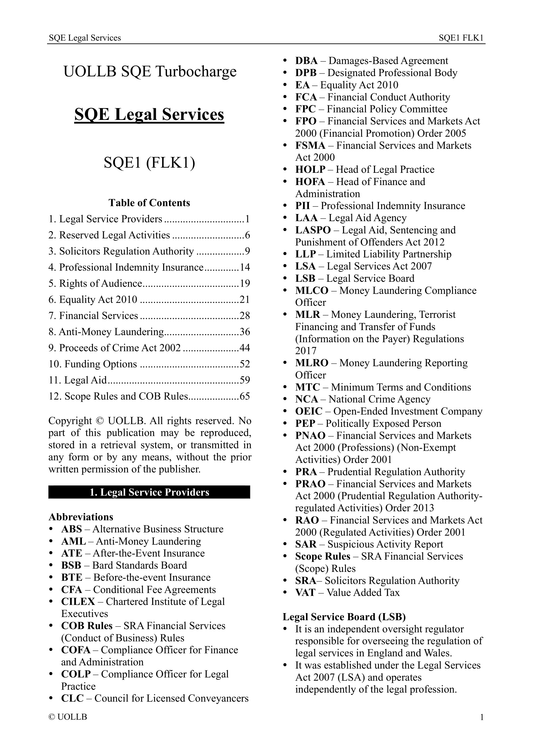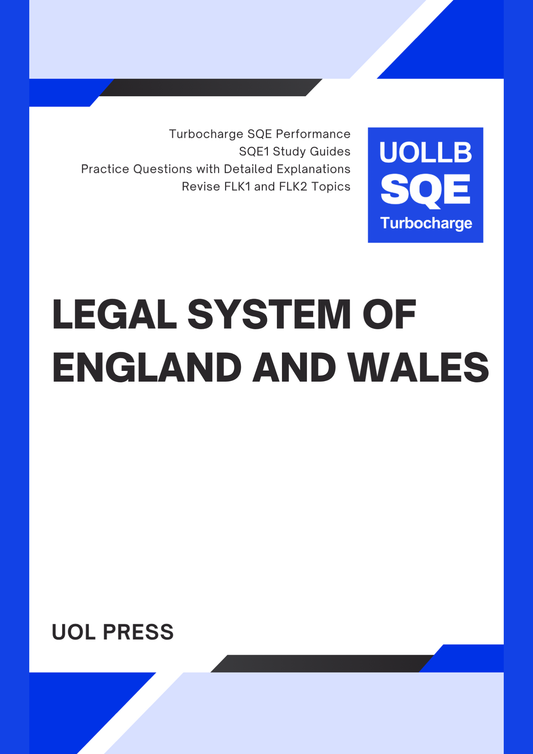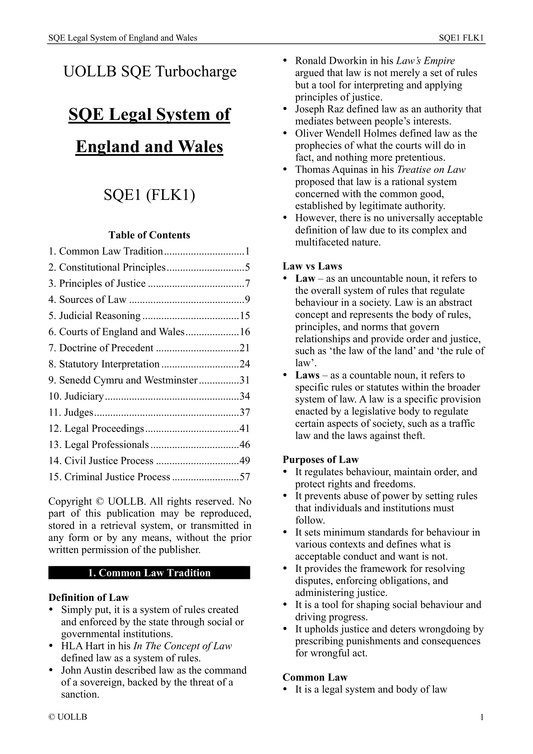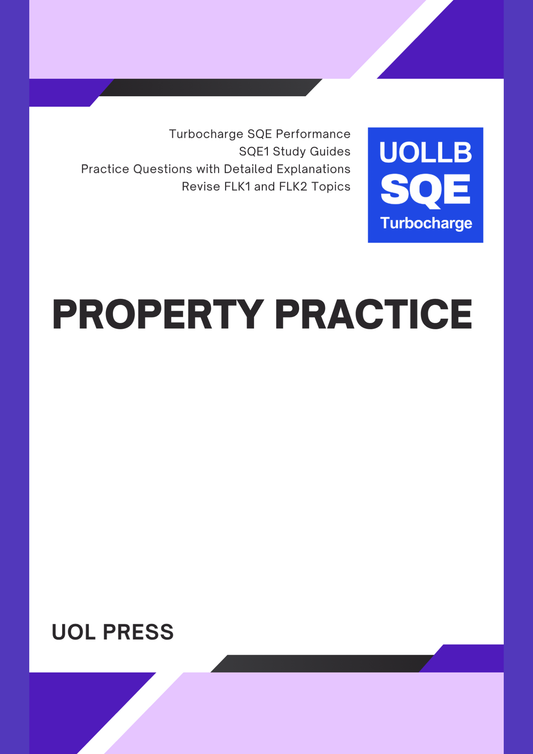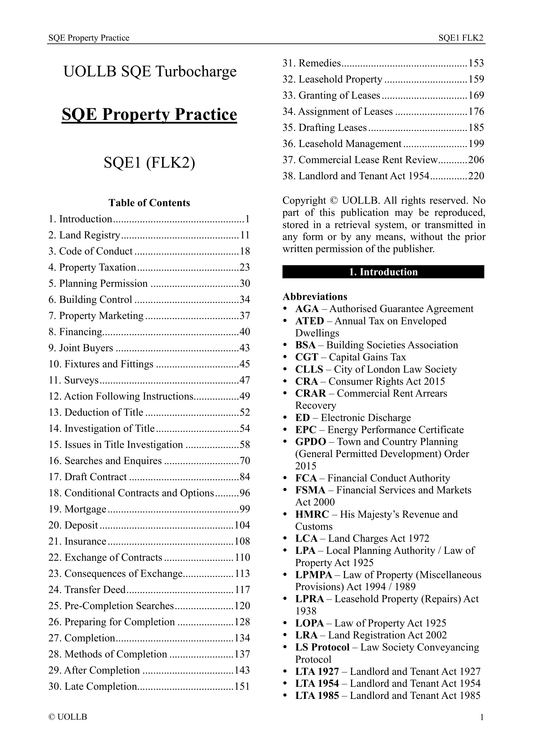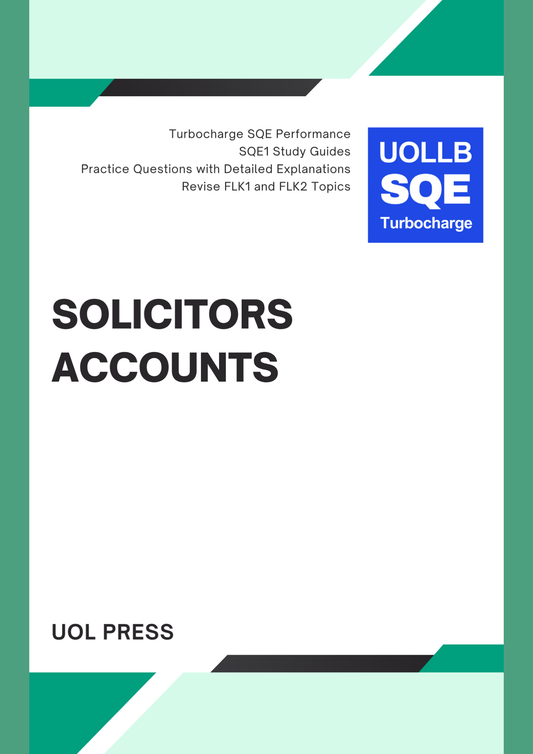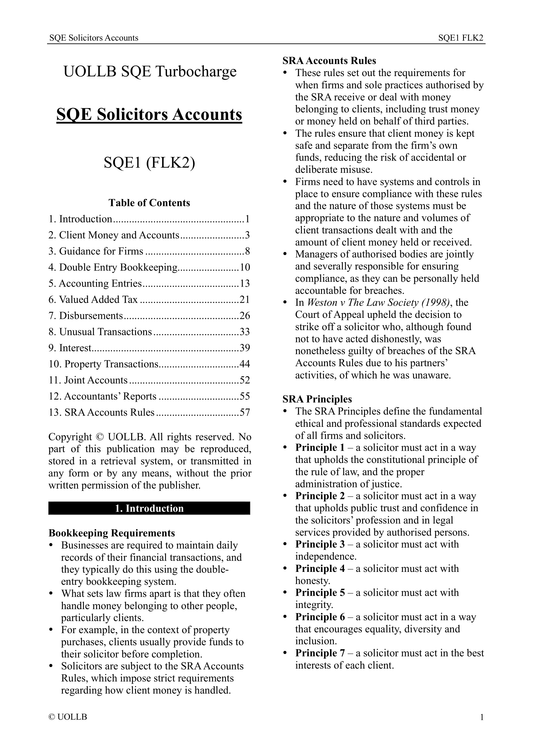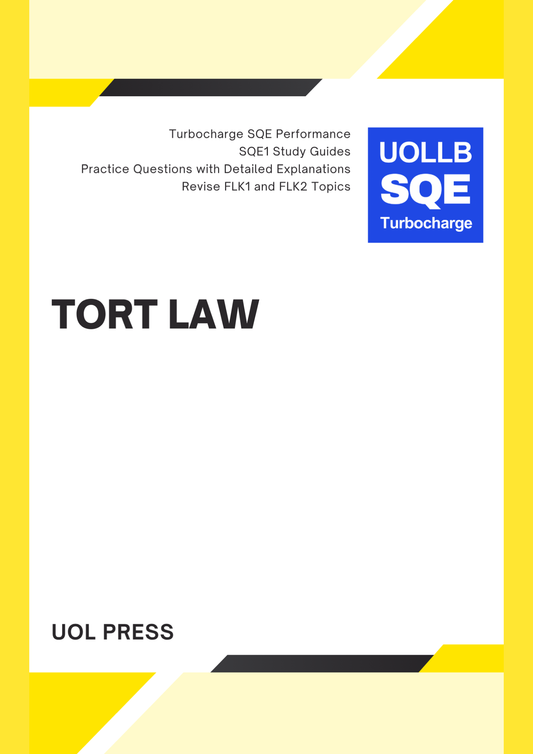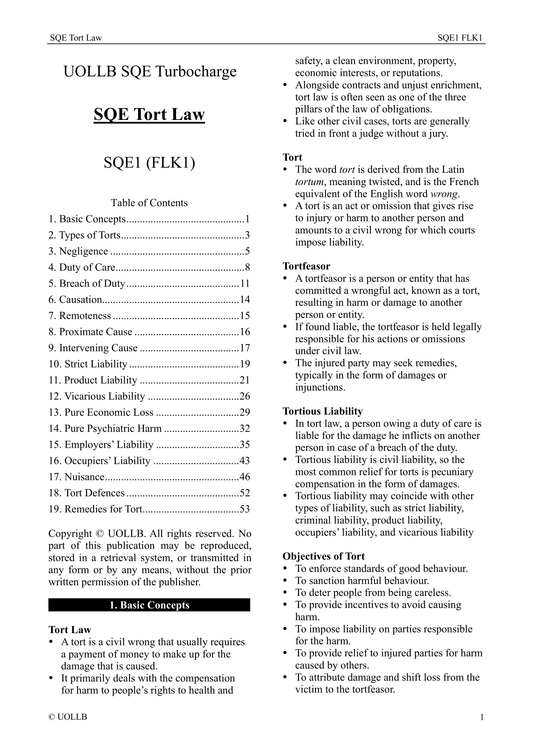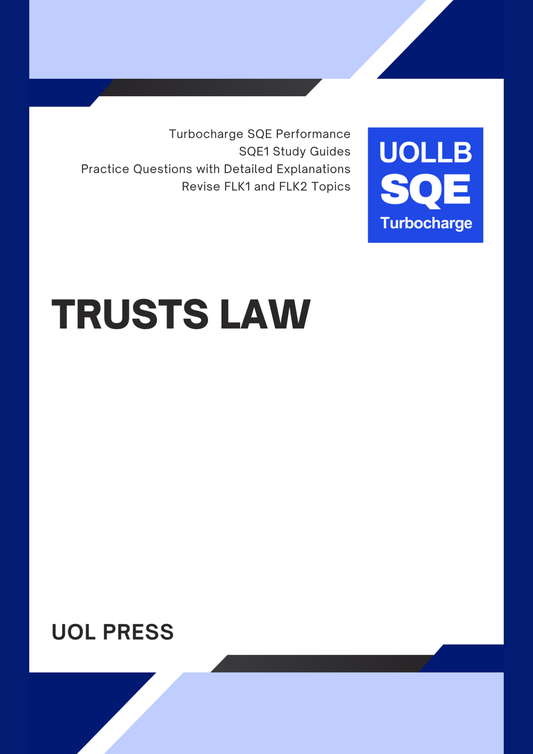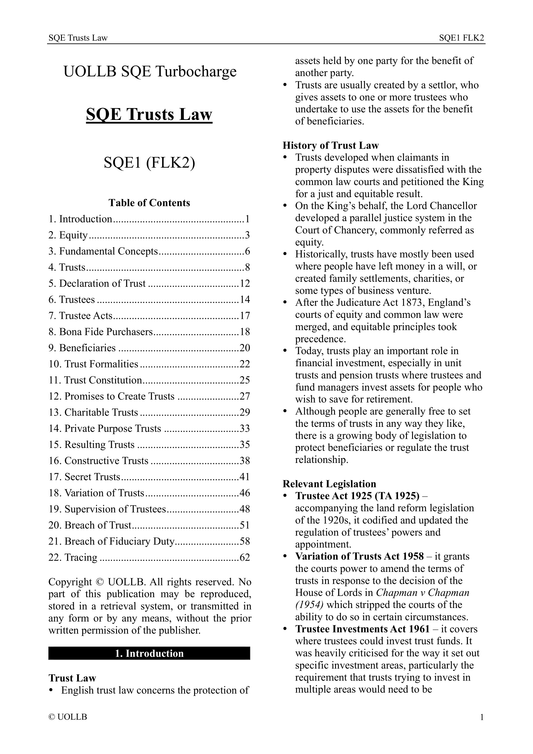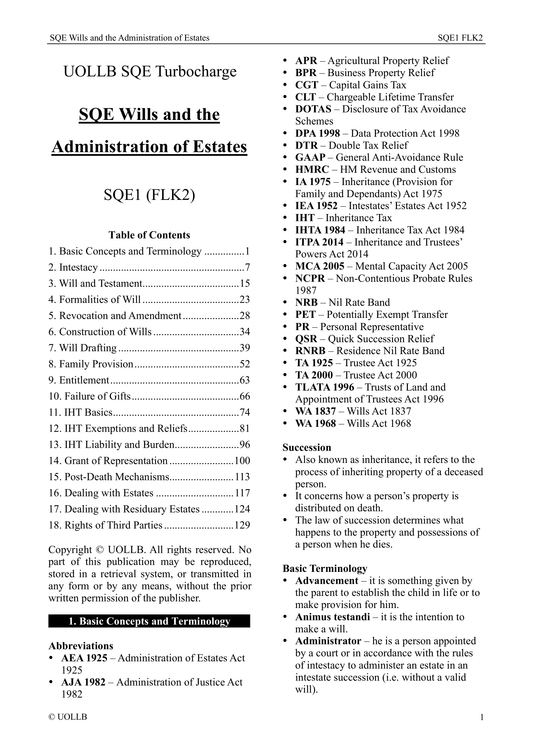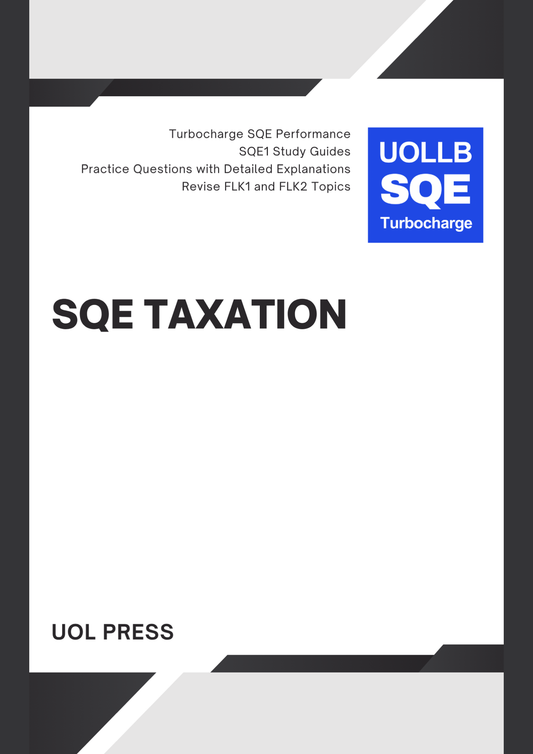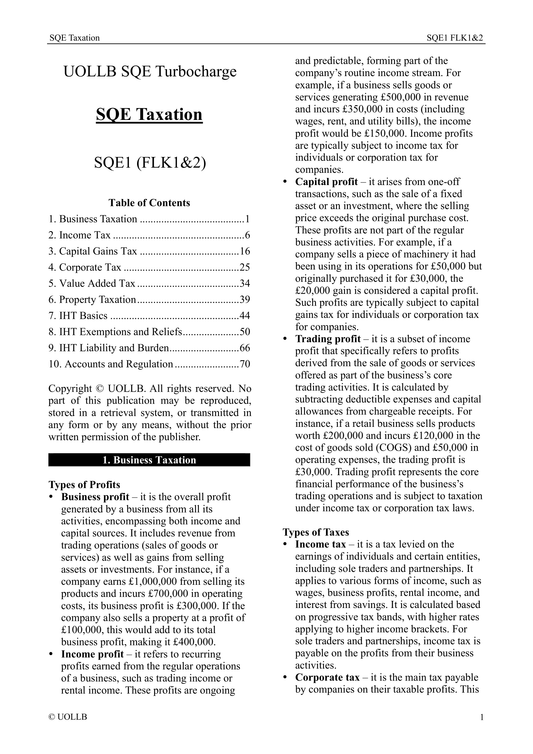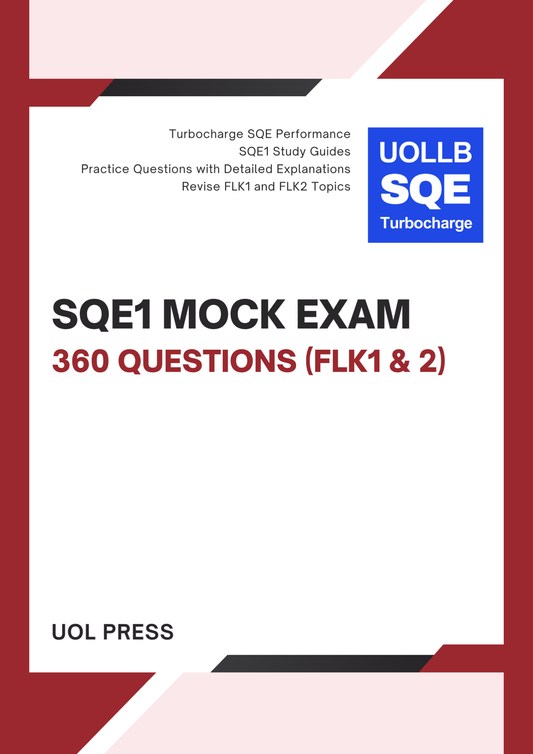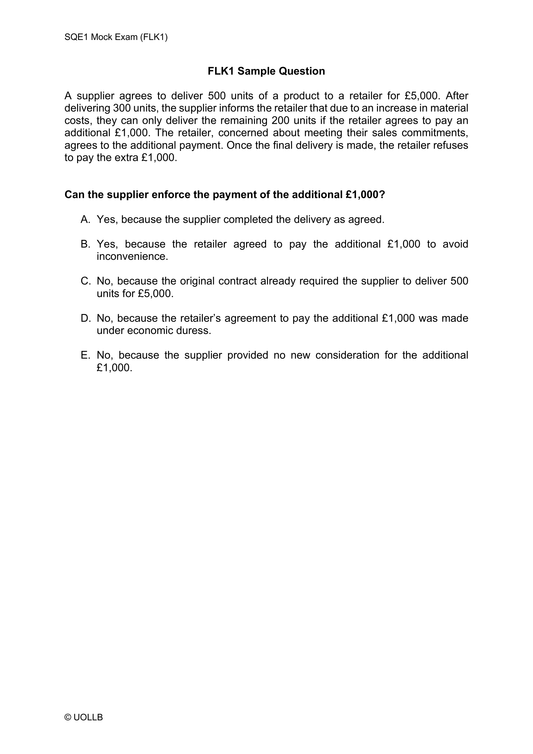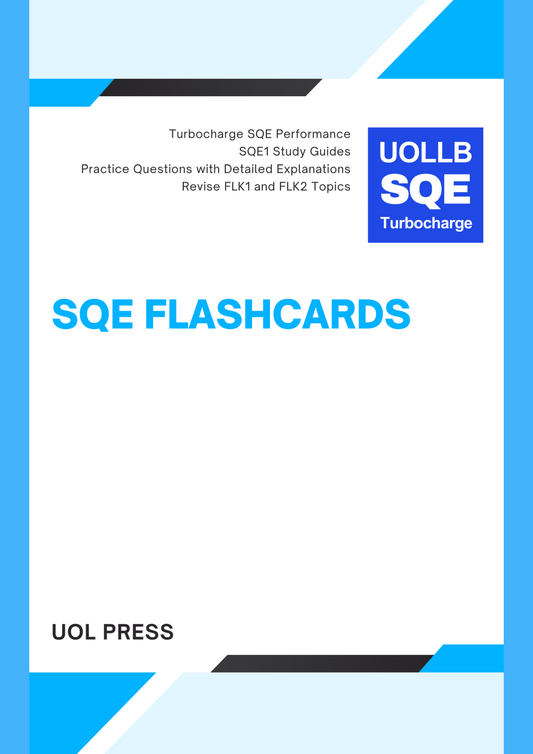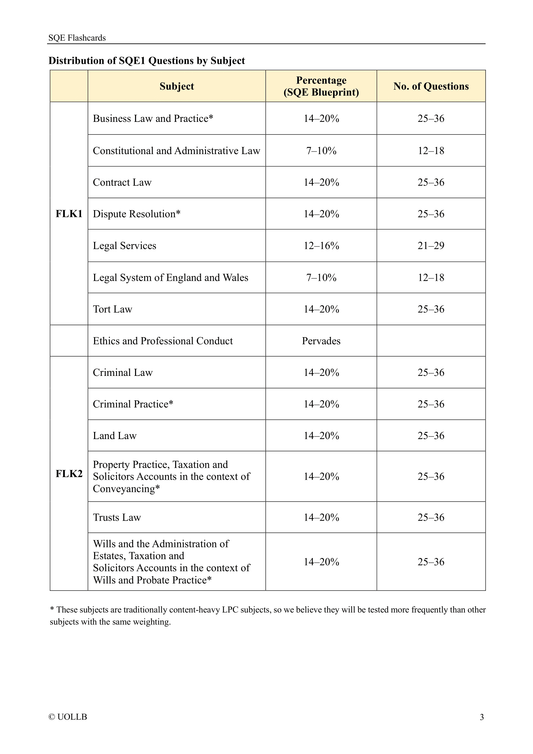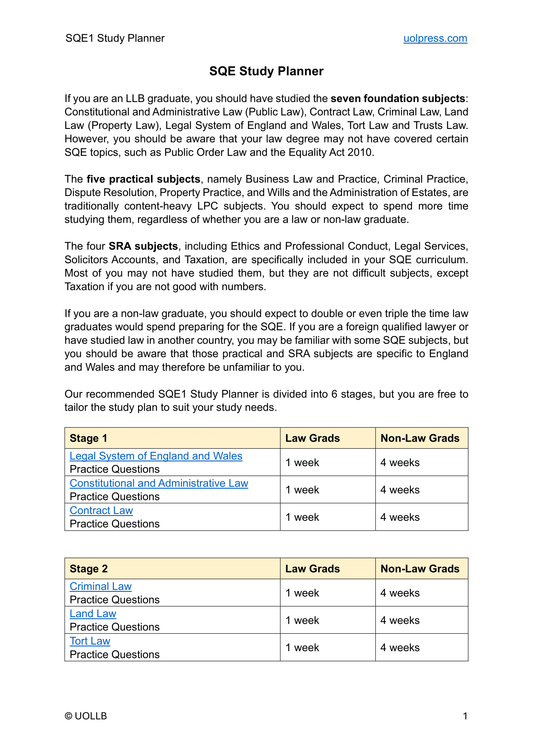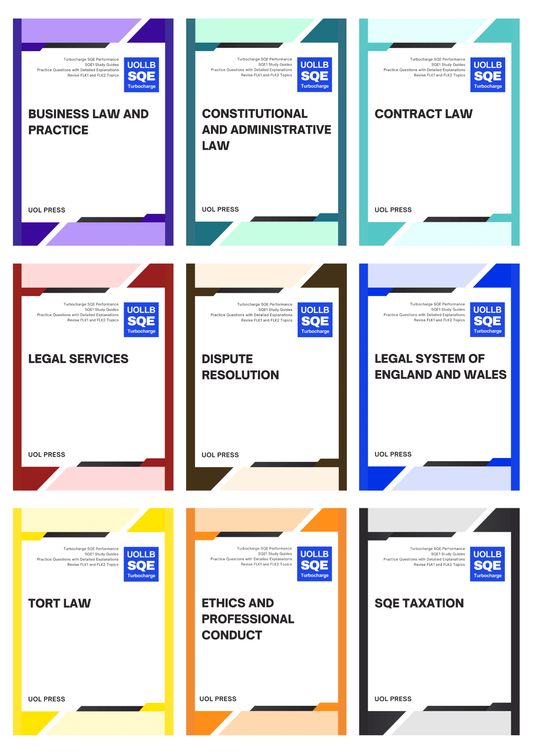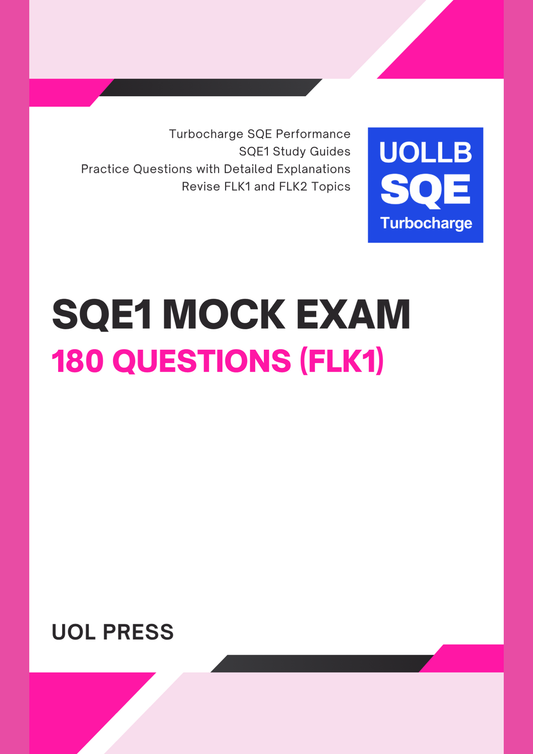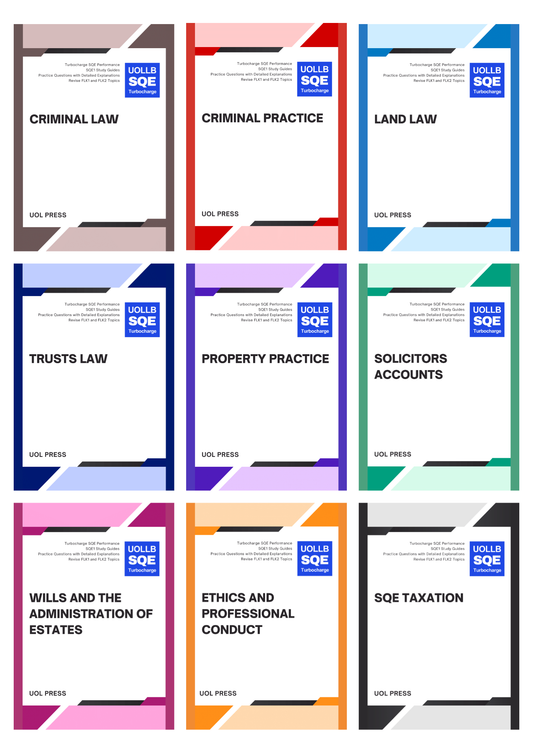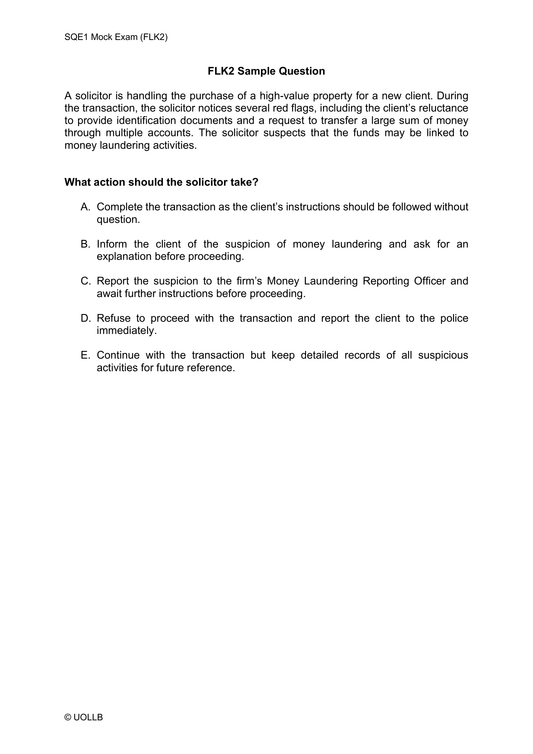How to Pass SQE2
Share
SQE2 is another major hurdle for you to overcome before you can qualify as a solicitor in England and Wales. This assessment focuses on practical legal skills and assesses how well you can apply that knowledge in realistic scenarios. The skills evaluated include legal writing, drafting, interviewing, advocacy, case analysis, and legal research across various areas of law. Here is a detailed guide on how you can prepare for and succeed in it.
Understand the Structure of SQE2
SQE2 consists of a number of practical assessments split between oral and written tasks. These tasks are distributed across six key legal skills:
1. Client Interview and Attendance Note / Legal Analysis: The client interview task evaluates your ability to conduct a professional and effective consultation. During the interview, you must build rapport with the client, making them feel comfortable and valued. Active listening is crucial, as you will need to identify the client’s objectives, understand his concerns, and extract all relevant facts to assess their situation. Although you are not expected to provide definitive legal advice, you may outline possible options or next steps based on the client’s needs. Your tone, communication skills, and ability to remain professional are key areas of assessment. After the interview, you must produce an attendance note or a written legal analysis summarising the discussion. This document should clearly outline the facts provided by the client, the legal issues identified, and the possible solutions or next steps. Your note must be well-structured, concise, and tailored to the client’s needs. It demonstrates your ability to analyse legal and factual issues critically and communicate your findings in writing.
2. Advocacy: The advocacy task tests your ability to present oral arguments in a simulated court or tribunal setting. You will be given a legal problem and asked to argue on behalf of your client, which may involve seeking or opposing an application, presenting submissions, or responding to arguments from the other side. The task evaluates your ability to organise and articulate your case logically and persuasively, using appropriate legal terminology and references to case law or statutes where applicable. Effective advocacy also requires managing objections, addressing the judge or tribunal respectfully, and responding to questions with confidence. Your tone, posture, and professionalism are assessed, as well as your ability to adapt to the dynamics of the hearing. Practice and preparation are essential to perform well in this task, as it mirrors real-life court proceedings.
3. Case and Matter Analysis: Case and matter analysis focuses on your ability to assess a legal problem holistically, considering both the factual and legal elements. You will be given a scenario and asked to identify the key legal issues, assess risks, and propose practical solutions. This task often involves prioritising issues and advising the client on the best course of action based on their objectives and the legal framework. In addition to demonstrating your legal reasoning, you must present your analysis in a clear and structured manner, typically as a written report or note. This task mirrors the real-world responsibilities of a solicitor, where understanding the bigger picture and managing client expectations are critical.
4. Legal Research: Legal research assesses your ability to identify relevant legal sources and apply them to answer a specific client query. You will be presented with a scenario requiring you to research applicable case law, statutes, or procedural rules to address a legal problem. The task evaluates your efficiency in locating accurate and relevant information and your ability to communicate your findings concisely. Your research must be well-structured, focusing on the client’s needs and providing practical guidance based on the information gathered. This task demonstrates your competency in navigating legal databases and applying your findings effectively to real-world situations.
5. Legal Writing: The legal writing task requires you to produce a clear, professional, and client-focused document, such as a letter of advice, memorandum, or email. This task evaluates your ability to communicate complex legal information in a way that is accessible to the intended audience. Your writing must be precise, concise, and free of unnecessary jargon while addressing the client’s specific concerns. Strong legal writing reflects your understanding of the client’s objectives and your ability to tailor advice accordingly. Proper structure, tone, and attention to detail are critical, as these elements ensure the document is both persuasive and professional.
6. Legal Drafting: Legal drafting tests your ability to create formal legal documents, such as contracts, wills, or pleadings. This task focuses on accuracy, clarity, and compliance with legal conventions. You must ensure the document addresses all necessary legal requirements and is tailored to the client’s needs or the specific scenario provided. Drafting requires attention to detail, as errors or ambiguities can have serious consequences. This task demonstrates your ability to translate legal principles into practical, enforceable documents while adhering to the professional standards expected of a solicitor.
For all the legal skill tasks, the scenarios cover both contentious (e.g. litigation) and non-contentious (e.g. business law or wills) practice areas. The assessment takes place over multiple days and is conducted at designated test centres.
Develop a Study Plan
Preparation for SQE2 requires both theoretical knowledge and practical application. We suggest you start by familiarising yourself with the types of tasks you will face. Allocate specific time to each skill to ensure that you practise both oral and written exercises under timed conditions. A balanced study plan might involve practising interviewing one day, working on drafting tasks the next, and alternating between legal writing and advocacy exercises throughout the week. If you are working full-time, dedicate evenings or weekends to your preparation, and consider taking time off closer to the exam for focused revision. Tailor your plan to fit your personal schedule, but ensure consistent, regular practice to build confidence.
Practice Each Skill Extensively
SQE2 requires you to demonstrate a range of legal skills in five specific areas under time constraints. Each skill needs focused attention and deliberate practice:
1. Criminal litigation (including advising clients at the police station): This area involves advising clients on their rights, obligations, and legal options in criminal matters, including police interviews. You must demonstrate your understanding of criminal procedure, such as bail, police powers of arrest, and interview processes. Key skills include advising clients on your right to silence, the implications of making a statement, and strategies for defending allegations. During the SQE2 assessment, you may role-play as a solicitor advising a client in a police station scenario. This involves interpreting the allegations, analysing the evidence, and providing legally sound advice tailored to the client's situation. You must show professionalism, empathy, and clarity while adhering to the rules of professional conduct.
2. Dispute resolution: This area focuses on the processes for resolving civil disputes, including negotiation, mediation, and litigation. This area encompasses procedural rules under the Civil Procedure Rules, pre-action protocols, and court processes such as issuing claims, filing defences, and disclosure requirements. In SQE2, tasks may include drafting legal documents such as a particulars of claim, or presenting oral advocacy during a simulated interim application. You must demonstrate their ability to analyse legal and factual issues, propose practical solutions, and represent their client effectively while maintaining professionalism and ethical standards.
3. Property practice: This area deals with transactions related to freehold and leasehold properties. This includes sales, purchases, leases, and mortgages. Key topics involve investigating title, drafting contracts, conducting searches, and managing completion and post-completion formalities such as registration at HM Land Registry. In the SQE2 assessment, you may be required to draft or review legal documents such as a lease or transfer deed. You must demonstrate attention to detail, a strong understanding of property law principles, and the ability to identify and resolve issues such as restrictive covenants or title defects.
4. Wills and intestacy, probate administration and practice: This area focuses on advising clients on creating valid wills, administering estates, and handling intestacy situations. You must understand the rules for distributing estates under the intestacy provisions, the process for obtaining grants of probate or letters of administration, and the legal formalities for drafting wills. In the SQE2, tasks may include drafting a will or advising a client on inheritance issues. You will need to demonstrate the ability to handle sensitive topics with empathy while ensuring legal accuracy. You must also be familiar with tax implications such as inheritance tax and how to structure wills to minimise liabilities.
5. Business organisations, rules and procedures (including money laundering and financial services): This area involves advising on the formation, management, and dissolution of business entities, including partnerships, limited liability partnerships, and companies. You must understand key rules related to governance, shareholder rights, and directors' duties, as well as procedural matters such as registering a company or filing resolutions. This area also covers compliance with anti-money laundering regulations and financial services rules. You must demonstrate an understanding of the Proceeds of Crime Act 2002, the Money Laundering Regulations, and their application to legal practice. In SQE2, tasks may include drafting corporate resolutions, advising on compliance with regulatory requirements, or addressing governance disputes. You must balance legal accuracy with commercial awareness and ensure your advice is practical and client-focused.
Use Reputable Resources
Invest in high-quality study materials or courses designed specifically for SQE2. Many providers offer mock assessments, sample tasks, and feedback to help you refine your skills. These resources simulate the exam conditions and provide insight into the level of detail and professionalism expected. Make use of revision guides, case law, and practice tests to reinforce your legal knowledge. Don't forget to revise the functioning legal knowledge tested in the SQE2. Remember, while SQE2 focuses on skills, having a solid understanding of the law is crucial to applying it effectively in assessments.
Work on Time Management
Time management is a critical factor in SQE2, as each task must be completed within a strict time frame. Practise completing tasks under timed conditions to simulate the pressure of the actual exam. For example, allocate the same amount of time provided in the exam for drafting a document or presenting an argument. This helps build the stamina and focus needed for exam day.
Seek Feedback
Feedback is essential to improving your performance. Share your practice tasks with mentors, colleagues, or legal professionals who can provide constructive criticism. For oral tasks like advocacy or interviewing, consider recording your sessions and reviewing them to identify areas for improvement.
Focus on Professionalism
SQE2 not only tests your technical skills but also evaluates your ability to maintain professionalism. Pay attention to your tone, demeanour, and attention to detail in both oral and written tasks. Use clear and concise language, avoid jargon, and demonstrate respect for clients and other professionals in every scenario.
Simulate Exam Conditions
Mock assessments are one of the best ways to prepare for SQE2. Replicating exam conditions helps you become familiar with the format, time constraints, and types of tasks you will encounter. Many course providers include mock exams in their packages, but you can also create your own by using sample tasks and setting a timer.
Prepare for Test Day Experience
SQE2 is conducted at designated test centres, so familiarise yourself with the logistics of the exam day. Plan your travel route, arrive early, and ensure you have all required documents (such as valid photo identification). Practise calming techniques like deep breathing to manage nerves on the day. Additionally, take care of your health and well-being during the preparation period. Get adequate sleep, stay hydrated, and eat brain-boosting foods to maintain focus and energy.
Final Review Before Exam
In the weeks leading up to the exam, consolidate your revision by focusing on areas where you feel less confident. Review your notes, practice tasks, and feedback to address any weaknesses. In the final days, focus on light revision to you feel prepared without overwhelming yourself.
Remember, success in SQE2 not only depends on your knowledge but also on your ability to apply it effectively in real-world scenarios. With consistent effort, strategic preparation, and a calm mindset, we believe you can excel in SQE2 and move closer to your goal of becoming a solicitor.
Understand the Structure of SQE2
SQE2 consists of a number of practical assessments split between oral and written tasks. These tasks are distributed across six key legal skills:
1. Client Interview and Attendance Note / Legal Analysis: The client interview task evaluates your ability to conduct a professional and effective consultation. During the interview, you must build rapport with the client, making them feel comfortable and valued. Active listening is crucial, as you will need to identify the client’s objectives, understand his concerns, and extract all relevant facts to assess their situation. Although you are not expected to provide definitive legal advice, you may outline possible options or next steps based on the client’s needs. Your tone, communication skills, and ability to remain professional are key areas of assessment. After the interview, you must produce an attendance note or a written legal analysis summarising the discussion. This document should clearly outline the facts provided by the client, the legal issues identified, and the possible solutions or next steps. Your note must be well-structured, concise, and tailored to the client’s needs. It demonstrates your ability to analyse legal and factual issues critically and communicate your findings in writing.
2. Advocacy: The advocacy task tests your ability to present oral arguments in a simulated court or tribunal setting. You will be given a legal problem and asked to argue on behalf of your client, which may involve seeking or opposing an application, presenting submissions, or responding to arguments from the other side. The task evaluates your ability to organise and articulate your case logically and persuasively, using appropriate legal terminology and references to case law or statutes where applicable. Effective advocacy also requires managing objections, addressing the judge or tribunal respectfully, and responding to questions with confidence. Your tone, posture, and professionalism are assessed, as well as your ability to adapt to the dynamics of the hearing. Practice and preparation are essential to perform well in this task, as it mirrors real-life court proceedings.
3. Case and Matter Analysis: Case and matter analysis focuses on your ability to assess a legal problem holistically, considering both the factual and legal elements. You will be given a scenario and asked to identify the key legal issues, assess risks, and propose practical solutions. This task often involves prioritising issues and advising the client on the best course of action based on their objectives and the legal framework. In addition to demonstrating your legal reasoning, you must present your analysis in a clear and structured manner, typically as a written report or note. This task mirrors the real-world responsibilities of a solicitor, where understanding the bigger picture and managing client expectations are critical.
4. Legal Research: Legal research assesses your ability to identify relevant legal sources and apply them to answer a specific client query. You will be presented with a scenario requiring you to research applicable case law, statutes, or procedural rules to address a legal problem. The task evaluates your efficiency in locating accurate and relevant information and your ability to communicate your findings concisely. Your research must be well-structured, focusing on the client’s needs and providing practical guidance based on the information gathered. This task demonstrates your competency in navigating legal databases and applying your findings effectively to real-world situations.
5. Legal Writing: The legal writing task requires you to produce a clear, professional, and client-focused document, such as a letter of advice, memorandum, or email. This task evaluates your ability to communicate complex legal information in a way that is accessible to the intended audience. Your writing must be precise, concise, and free of unnecessary jargon while addressing the client’s specific concerns. Strong legal writing reflects your understanding of the client’s objectives and your ability to tailor advice accordingly. Proper structure, tone, and attention to detail are critical, as these elements ensure the document is both persuasive and professional.
6. Legal Drafting: Legal drafting tests your ability to create formal legal documents, such as contracts, wills, or pleadings. This task focuses on accuracy, clarity, and compliance with legal conventions. You must ensure the document addresses all necessary legal requirements and is tailored to the client’s needs or the specific scenario provided. Drafting requires attention to detail, as errors or ambiguities can have serious consequences. This task demonstrates your ability to translate legal principles into practical, enforceable documents while adhering to the professional standards expected of a solicitor.
For all the legal skill tasks, the scenarios cover both contentious (e.g. litigation) and non-contentious (e.g. business law or wills) practice areas. The assessment takes place over multiple days and is conducted at designated test centres.
Develop a Study Plan
Preparation for SQE2 requires both theoretical knowledge and practical application. We suggest you start by familiarising yourself with the types of tasks you will face. Allocate specific time to each skill to ensure that you practise both oral and written exercises under timed conditions. A balanced study plan might involve practising interviewing one day, working on drafting tasks the next, and alternating between legal writing and advocacy exercises throughout the week. If you are working full-time, dedicate evenings or weekends to your preparation, and consider taking time off closer to the exam for focused revision. Tailor your plan to fit your personal schedule, but ensure consistent, regular practice to build confidence.
Practice Each Skill Extensively
SQE2 requires you to demonstrate a range of legal skills in five specific areas under time constraints. Each skill needs focused attention and deliberate practice:
1. Criminal litigation (including advising clients at the police station): This area involves advising clients on their rights, obligations, and legal options in criminal matters, including police interviews. You must demonstrate your understanding of criminal procedure, such as bail, police powers of arrest, and interview processes. Key skills include advising clients on your right to silence, the implications of making a statement, and strategies for defending allegations. During the SQE2 assessment, you may role-play as a solicitor advising a client in a police station scenario. This involves interpreting the allegations, analysing the evidence, and providing legally sound advice tailored to the client's situation. You must show professionalism, empathy, and clarity while adhering to the rules of professional conduct.
2. Dispute resolution: This area focuses on the processes for resolving civil disputes, including negotiation, mediation, and litigation. This area encompasses procedural rules under the Civil Procedure Rules, pre-action protocols, and court processes such as issuing claims, filing defences, and disclosure requirements. In SQE2, tasks may include drafting legal documents such as a particulars of claim, or presenting oral advocacy during a simulated interim application. You must demonstrate their ability to analyse legal and factual issues, propose practical solutions, and represent their client effectively while maintaining professionalism and ethical standards.
3. Property practice: This area deals with transactions related to freehold and leasehold properties. This includes sales, purchases, leases, and mortgages. Key topics involve investigating title, drafting contracts, conducting searches, and managing completion and post-completion formalities such as registration at HM Land Registry. In the SQE2 assessment, you may be required to draft or review legal documents such as a lease or transfer deed. You must demonstrate attention to detail, a strong understanding of property law principles, and the ability to identify and resolve issues such as restrictive covenants or title defects.
4. Wills and intestacy, probate administration and practice: This area focuses on advising clients on creating valid wills, administering estates, and handling intestacy situations. You must understand the rules for distributing estates under the intestacy provisions, the process for obtaining grants of probate or letters of administration, and the legal formalities for drafting wills. In the SQE2, tasks may include drafting a will or advising a client on inheritance issues. You will need to demonstrate the ability to handle sensitive topics with empathy while ensuring legal accuracy. You must also be familiar with tax implications such as inheritance tax and how to structure wills to minimise liabilities.
5. Business organisations, rules and procedures (including money laundering and financial services): This area involves advising on the formation, management, and dissolution of business entities, including partnerships, limited liability partnerships, and companies. You must understand key rules related to governance, shareholder rights, and directors' duties, as well as procedural matters such as registering a company or filing resolutions. This area also covers compliance with anti-money laundering regulations and financial services rules. You must demonstrate an understanding of the Proceeds of Crime Act 2002, the Money Laundering Regulations, and their application to legal practice. In SQE2, tasks may include drafting corporate resolutions, advising on compliance with regulatory requirements, or addressing governance disputes. You must balance legal accuracy with commercial awareness and ensure your advice is practical and client-focused.
Use Reputable Resources
Invest in high-quality study materials or courses designed specifically for SQE2. Many providers offer mock assessments, sample tasks, and feedback to help you refine your skills. These resources simulate the exam conditions and provide insight into the level of detail and professionalism expected. Make use of revision guides, case law, and practice tests to reinforce your legal knowledge. Don't forget to revise the functioning legal knowledge tested in the SQE2. Remember, while SQE2 focuses on skills, having a solid understanding of the law is crucial to applying it effectively in assessments.
Work on Time Management
Time management is a critical factor in SQE2, as each task must be completed within a strict time frame. Practise completing tasks under timed conditions to simulate the pressure of the actual exam. For example, allocate the same amount of time provided in the exam for drafting a document or presenting an argument. This helps build the stamina and focus needed for exam day.
Seek Feedback
Feedback is essential to improving your performance. Share your practice tasks with mentors, colleagues, or legal professionals who can provide constructive criticism. For oral tasks like advocacy or interviewing, consider recording your sessions and reviewing them to identify areas for improvement.
Focus on Professionalism
SQE2 not only tests your technical skills but also evaluates your ability to maintain professionalism. Pay attention to your tone, demeanour, and attention to detail in both oral and written tasks. Use clear and concise language, avoid jargon, and demonstrate respect for clients and other professionals in every scenario.
Simulate Exam Conditions
Mock assessments are one of the best ways to prepare for SQE2. Replicating exam conditions helps you become familiar with the format, time constraints, and types of tasks you will encounter. Many course providers include mock exams in their packages, but you can also create your own by using sample tasks and setting a timer.
Prepare for Test Day Experience
SQE2 is conducted at designated test centres, so familiarise yourself with the logistics of the exam day. Plan your travel route, arrive early, and ensure you have all required documents (such as valid photo identification). Practise calming techniques like deep breathing to manage nerves on the day. Additionally, take care of your health and well-being during the preparation period. Get adequate sleep, stay hydrated, and eat brain-boosting foods to maintain focus and energy.
Final Review Before Exam
In the weeks leading up to the exam, consolidate your revision by focusing on areas where you feel less confident. Review your notes, practice tasks, and feedback to address any weaknesses. In the final days, focus on light revision to you feel prepared without overwhelming yourself.
Remember, success in SQE2 not only depends on your knowledge but also on your ability to apply it effectively in real-world scenarios. With consistent effort, strategic preparation, and a calm mindset, we believe you can excel in SQE2 and move closer to your goal of becoming a solicitor.

